Introduction
The Best Diet for Poodle focuses on balanced nutrition tailored to their unique needs
- Understanding Poodle dietary needs is key to promoting overall health and longevity
- Poodles thrive on a mix of high-quality proteins, healthy fats, and essential nutrients
- Choosing the right portion sizes helps maintain your Poodle’s ideal weight and energy
- Avoiding harmful ingredients ensures your Poodle's diet supports a long, healthy life
- Incorporating natural, vet-approved foods benefits your Poodle’s digestion and coat
1. Understanding Poodle Nutritional Needs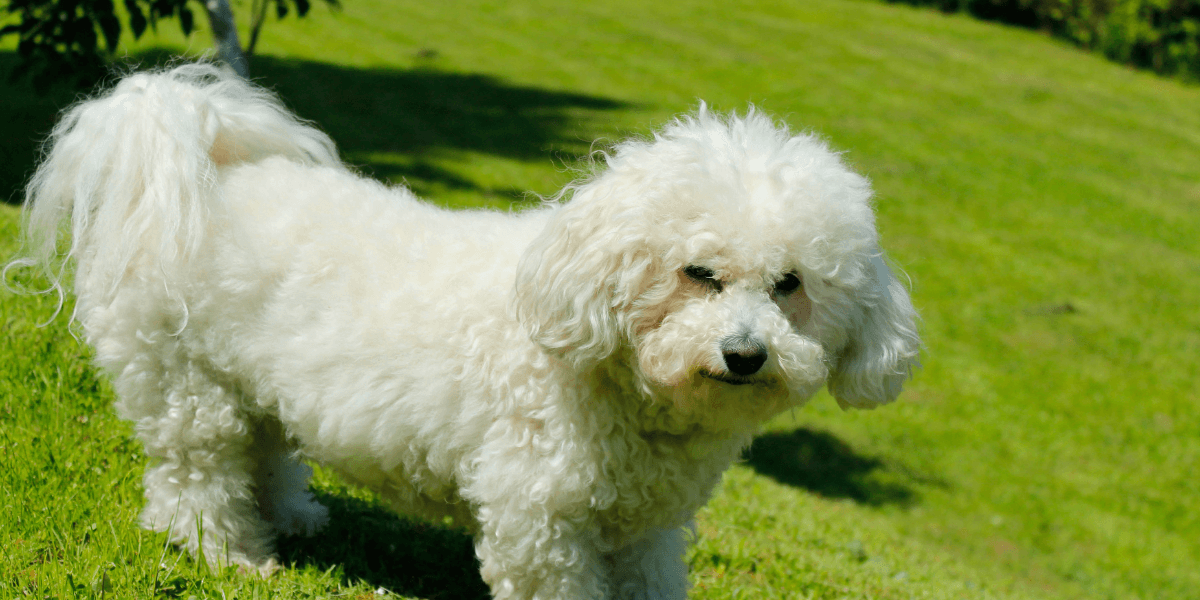
Different breeds have unique nutritional needs, and Poodles are no exception.
- Protein: Poodles need high-quality protein as the foundation of their diet
- Fats: Poodles benefit from omega-3 and omega-6 fatty acids
- Carbohydrates: Choose easily digestible carbs like sweet potatoes, brown rice, and oats
- Portion Control: Adjust meal sizes based on your Poodles age, weight, and activity level
- Vitamins and Minerals: Your Poodle’s diet should include a range of vitamin and mineral
2. The Best Food Types for Poodles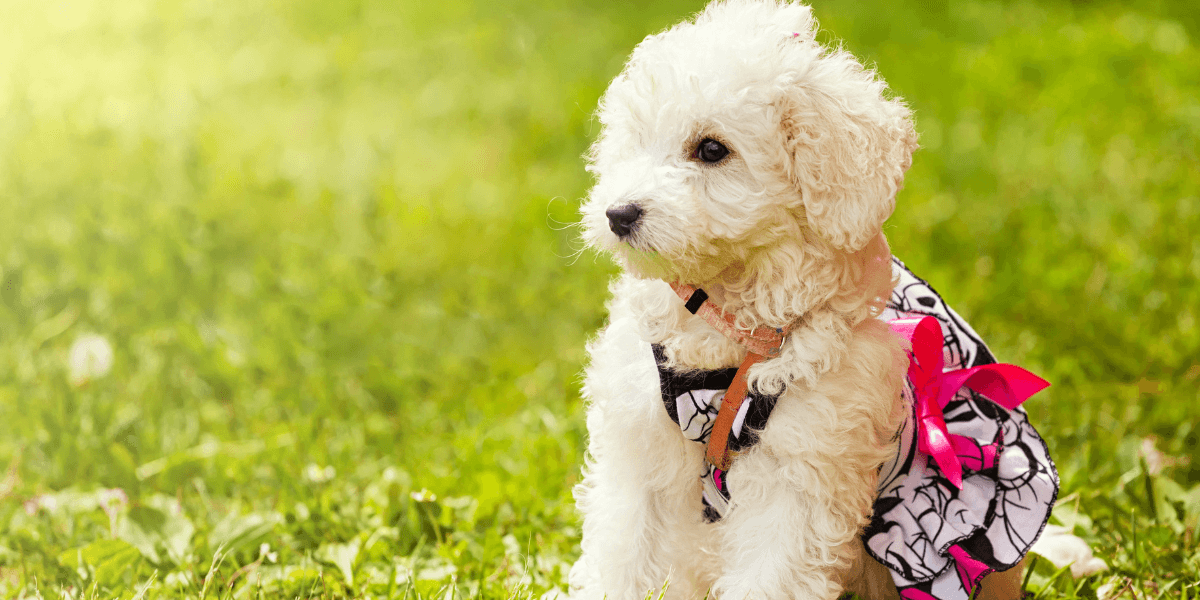
Here’s a breakdown of the common food types to consider:
- Dry Kibble: Cost-effective, dry kibble is a popular choice for many Poodle owners
- Wet Food: Wet food can be used as a topper or mixed with dry kibble for variety
- Freeze-Dried Food: Provides raw nutrition with the convenience of dry food
- Raw Diet: Some Poodle owners opt for a raw or Biologically Appropriate Raw Food diet
- Home-Cooked Meals: Preparing homemade meals gives you full control over your dog’s diet
3. Age-Appropriate Feeding: Puppy, Adult, and Senior Poodles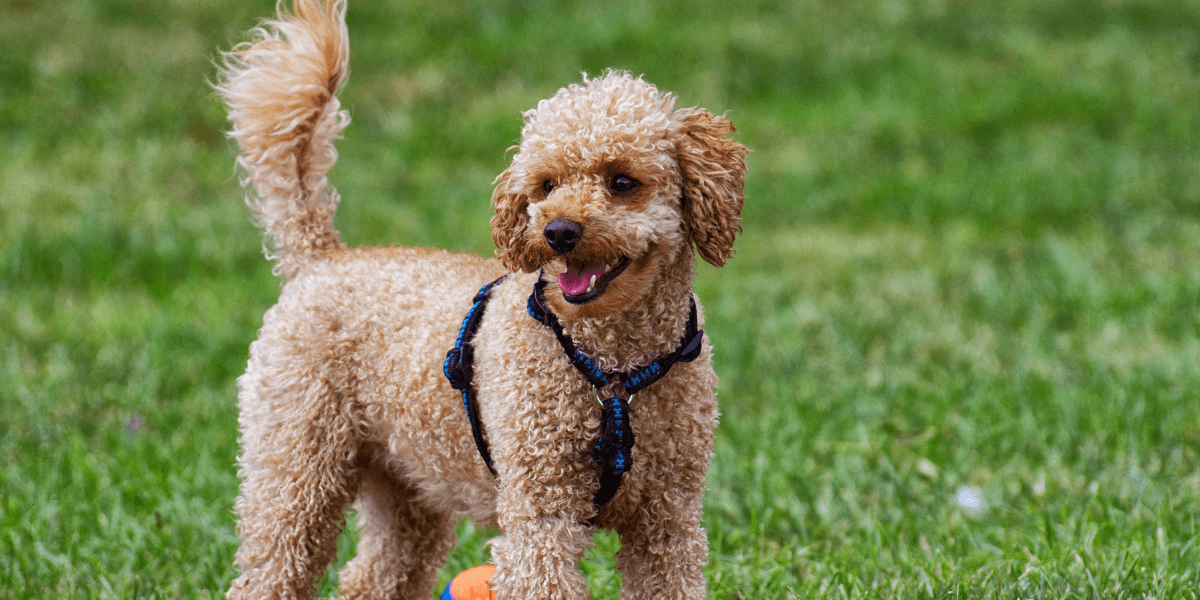
Your Poodle’s nutritional requirements change as they age.
- Poodle Puppies: Frequent meals and choose puppy-specific formulas designed
- Adult Poodles: Stick to feeding schedules and monitor portion sizes to prevent obesity
- Senior Poodles: Their metabolism slows down, and they may require fewer calories
4. Managing Common Poodle Health Issues Through Diet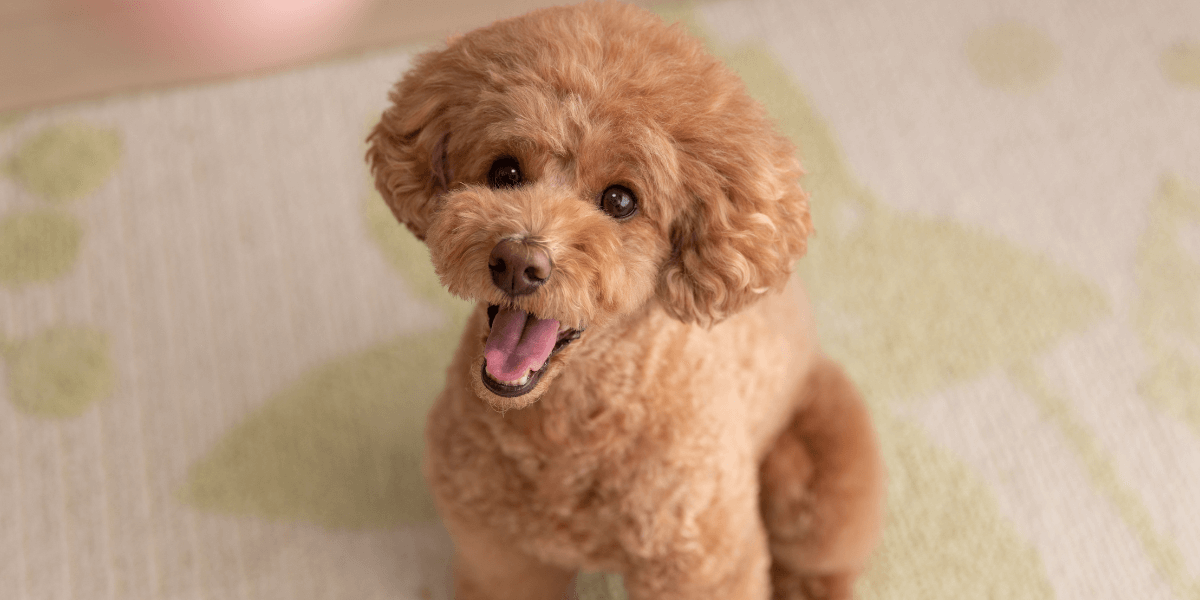
They are prone to certain health conditions that can be mitigated with the right diet.
- Hip Dysplasia: Feeding a balanced diet can help prevent obesity
- Skin and Coat Health: Poodles are prone to dry skin and coat issues
- Gastrointestinal Issues: Some Poodles can be sensitive to certain foods
- Allergy: Opt for hypoallergenic diets if your Poodle shows signs of food sensitivities
- Joint Support: Include foods rich in omega-3 fatty acids and glucosamine
- Dental Health: Incorporate crunchy kibble or dental chews to reduce plaque buildup
Learn how proper nutrition can help manage Poodle health issues like in Hip Dysplasia in Great Danes.
5. Portion Control and Feeding Frequency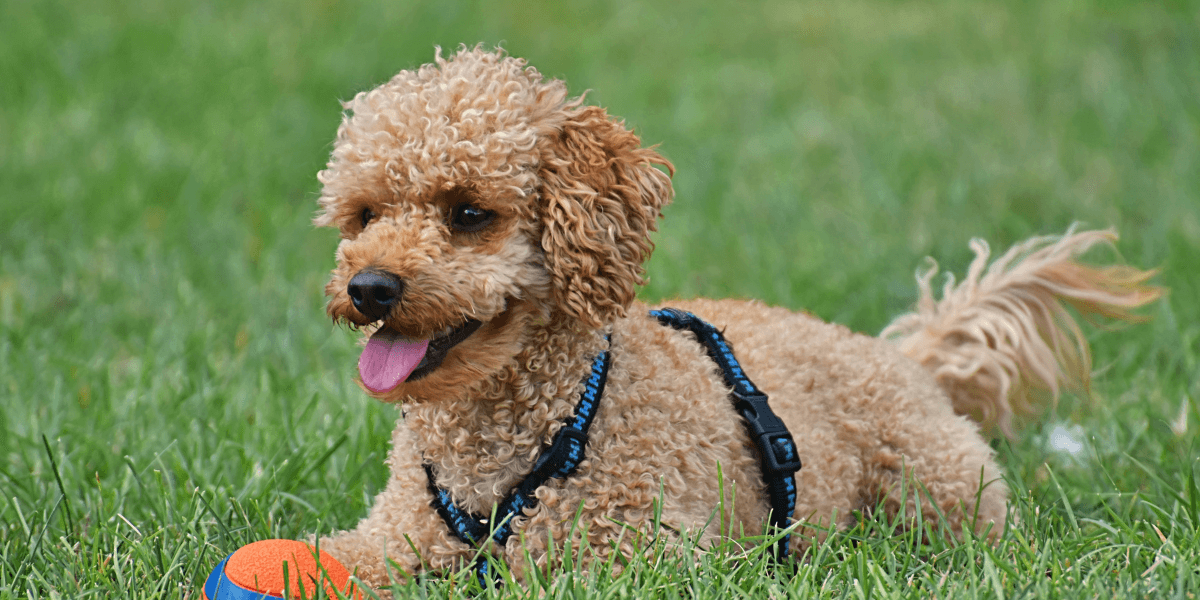
Overfeeding is a common issue that can lead to obesity and related health problems.
- Toy and Miniature Poodles: These smaller Poodles have higher metabolisms
- Standard Poodles: Larger Poodles can thrive on 2 meals per day
- Monitor Weight: Regularly check your Poodle’s weight and body condition
- Consistent Schedule: Feed your Poodle at the same times to support healthy digestion
- Adjust for Activity Level: Increase or decrease portions based on your Poodle's activity
- Avoid Free-Feeding: Stick to measured portions to prevent overeating and maintain a weight
6. Recommended Dog Food Brands for Poodles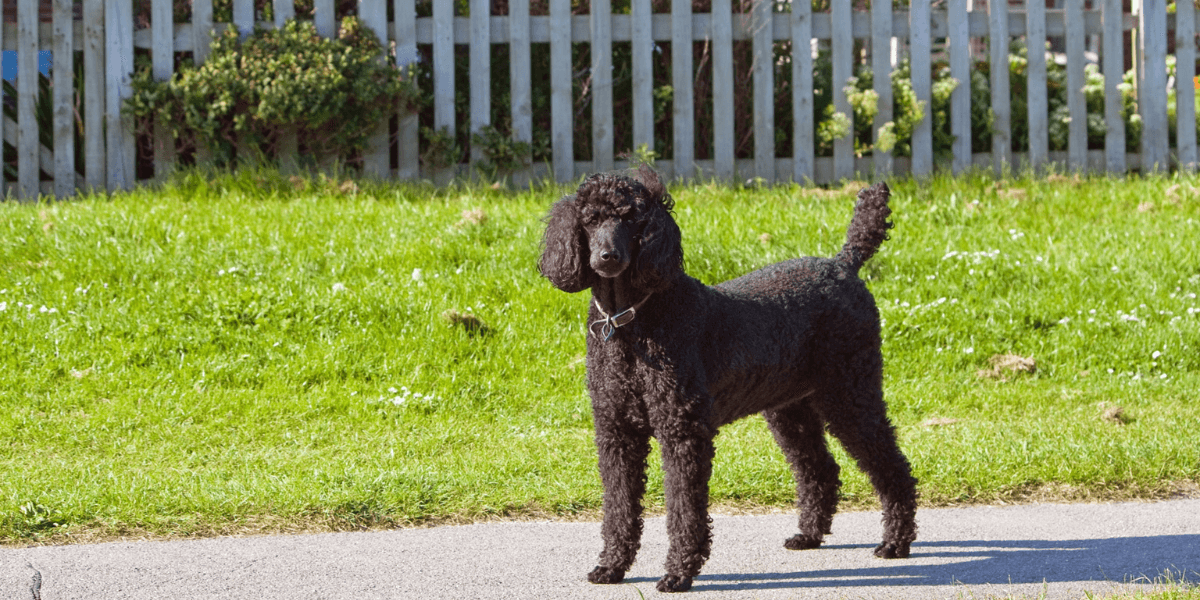
Here are some highly recommended brands known for their quality ingredients:
- Blue Buffalo Life Protection Formula: Known for using real meat and whole grains
- Merrick Grain-Free: A high-protein formula with real deboned meat for optimal energy
- Royal Canin Poodle Formula: This food includes nutrients that promote healthy skin
- Wellness Core Grain-Free: A protein-rich, grain-free option that uses high-quality meat
- Hill’s Science Diet: This brand offers balanced nutrition for different age groups
Discover top dog food brands for Poodles and find insights from our Guide to Great Danes Nutrition.
7. Tips for Switching Your Poodle’s Diet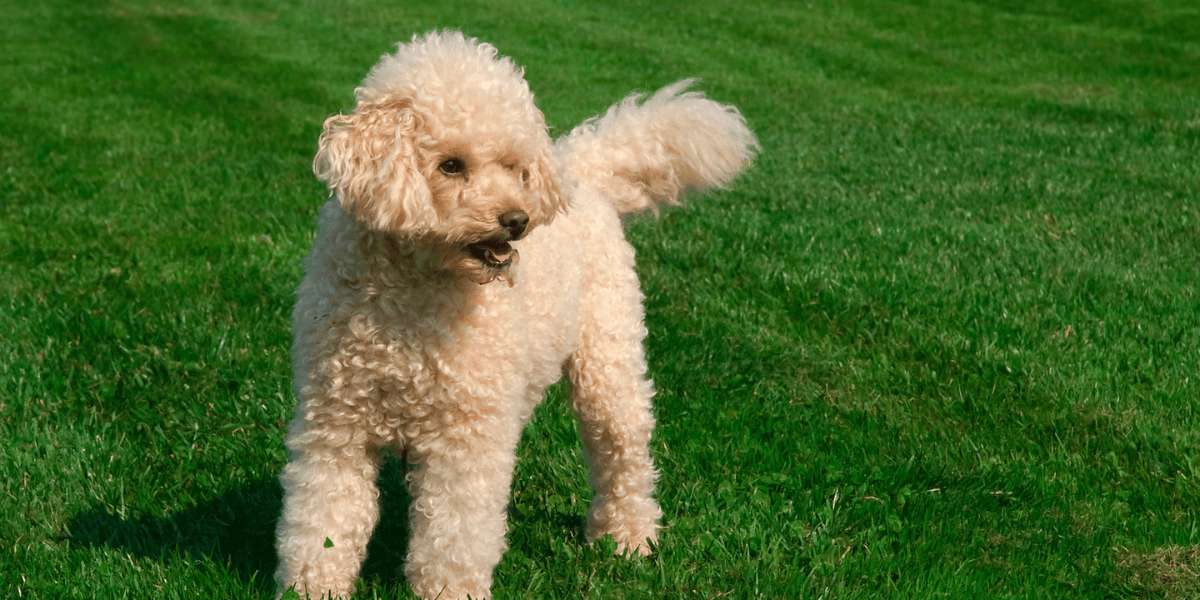
Switching your Poodle’s food should be done gradually to avoid stomach upset.
- Gradual Transition: Start by mixing a small amount of the new food with the current food
- Monitor Reactions: Watch for any changes in stool consistency or coat condition
- Proteins Slowly: Gradually add new protein sources to prevent allergies or sensitivities
- Incorporate Supplements: Consider adding supplements recommended by your vet
- Observe Portion Sizes: Adjust food quantities to avoid overfeeding during the transition
- Patience is Key: Take 7-10 days for a smooth transition to avoid digestive upset
Get expert tips on switching your Poodle's diet from our guide on The Healthiest Diet for a German Shepherd Dog.
FAQs
1. What is the best diet for Poodle?
- A balanced diet with protein, healthy fats, and fiber is ideal
2. How often should I feed my Poodle?
- Adult Poodles should be fed twice daily, and puppies more frequently
3. Can Poodles eat human food?
- Stick to dog-specific foods; some human foods can be harmful
4. Is grain-free food better for Poodles?
- Not always. Consult your vet before choosing grain-free diets
5. What ingredients should I avoid?
- Avoid foods with fillers, artificial preservatives, and by-products
6. Do Poodles need special supplements?
- A balanced diet usually suffices, but consult your vet for advice
7. Is dry or wet food better for Poodles?
- A mix of both is recommended for the best diet for Poodle health
Conclusion
- The Best Diet for Poodle involves balanced meals tailored to their unique requirements
- High-quality ingredients are key to maintaining your Poodle’s health and vitality
- Adjusting food portions based on age, and activity level keeps your Poodle in optimal shape
- Regular vet consultations ensure your Poodle’s diet supports their overall well-being
- Consistency in meal plans promotes better digestion and energy levels in Poodles
Leave a comment with your own feeding tips or experiences!
References
For more information on the Best Diet for Poodle, check:
- Ideal Diet for Poodles – The Ultimate Poodle Feeding Guide
- The Best Diet for Poodle Dog
- A Guide to Preventing Joint Problems in Dogs
- Hip Dysplasia in Dogs: Causes, Symptoms, and Treatments
- 6 Best Dog Foods For Poodles That Even The Pickiest of Them Will Love
Thank you!



